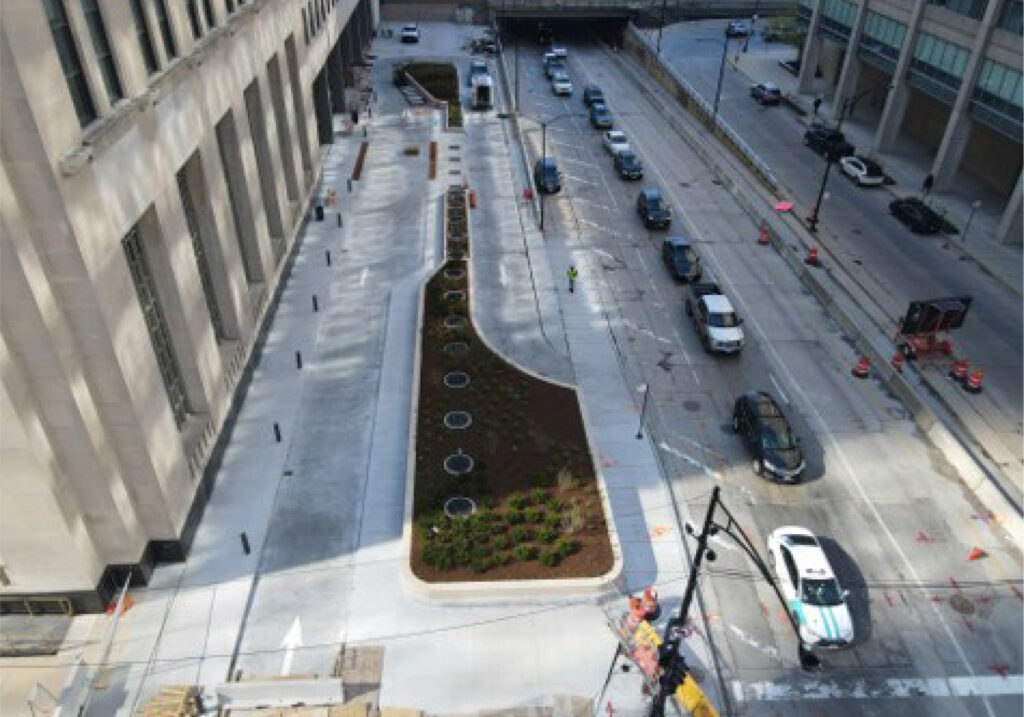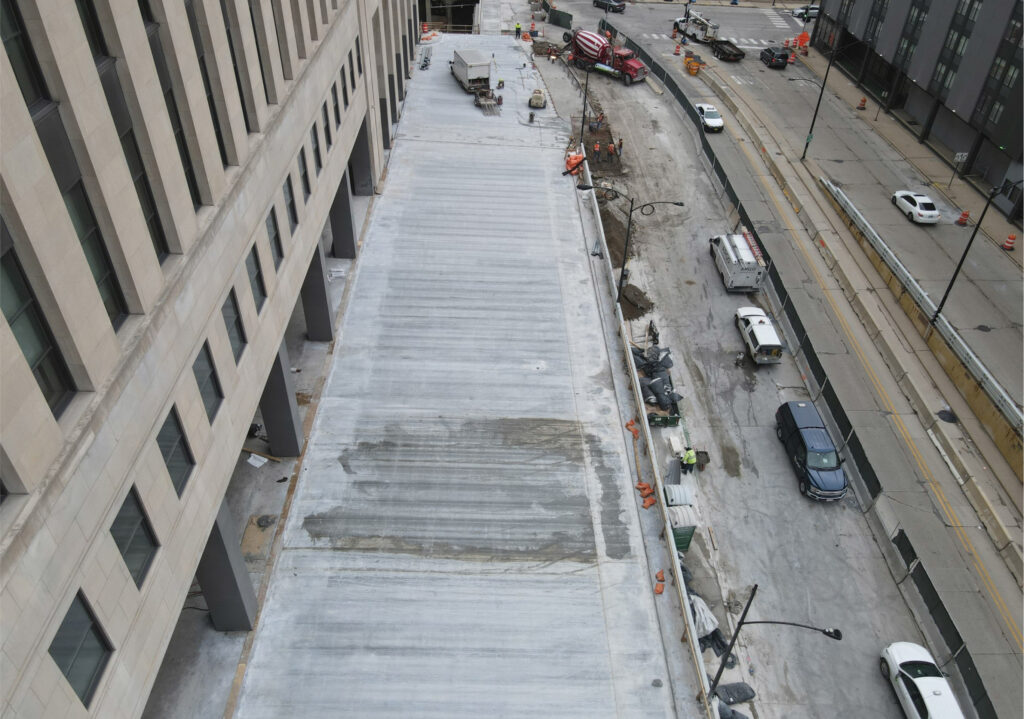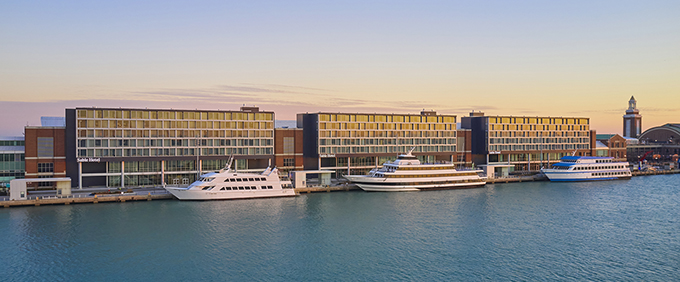Project of the Year Feature – Infrastructure
January 11, 2024
BURR RIDGE – CISCO’s 4th Project of the Year Feature is the top choice of Infrastructure, which is Canal Street Plaza Reconstruction. General contractor was F.H. Paschen, S.N. Nielsen & Associates LLC; client was Jones Lang LaSalle (JLL)
When considering submissions, judging criteria is based on: quality of construction, design, impact on the community and safety record.
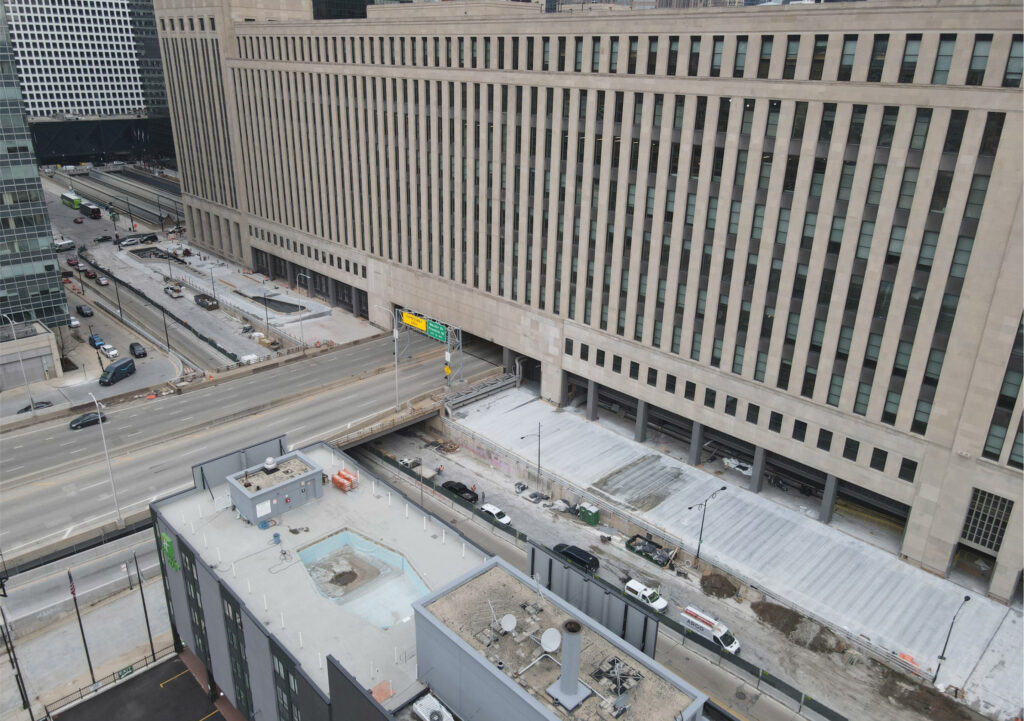
Not many buildings have a busy expressway running through them and active commuter rail lines just below, but for Chicago’s Old Post Office, they’re some of its most iconic features. Numerous additions and structural changes in its 100+-year history meant the building and adjacent Van Buren/Canal Street viaducts needed repairs, but the unique structure-on-structure design required an innovative construction approach.
F.H. Paschen demolished and replaced the West Plaza viaduct superstructure between Van Buren & Harrison Streets. Because the new superstructure is tied into the existing steel structure, F.H. Paschen carefully planned the steel fabrication, including detailed surveys, field measurement verifications, and 3D modeling to locate and integrate the utilities, performing all work without any safety issues. New streetscapes for the North and South Plaza now efficiently use the space, add green space in warm months with rooftop gardens, and provide greater access to the building’s occupants.
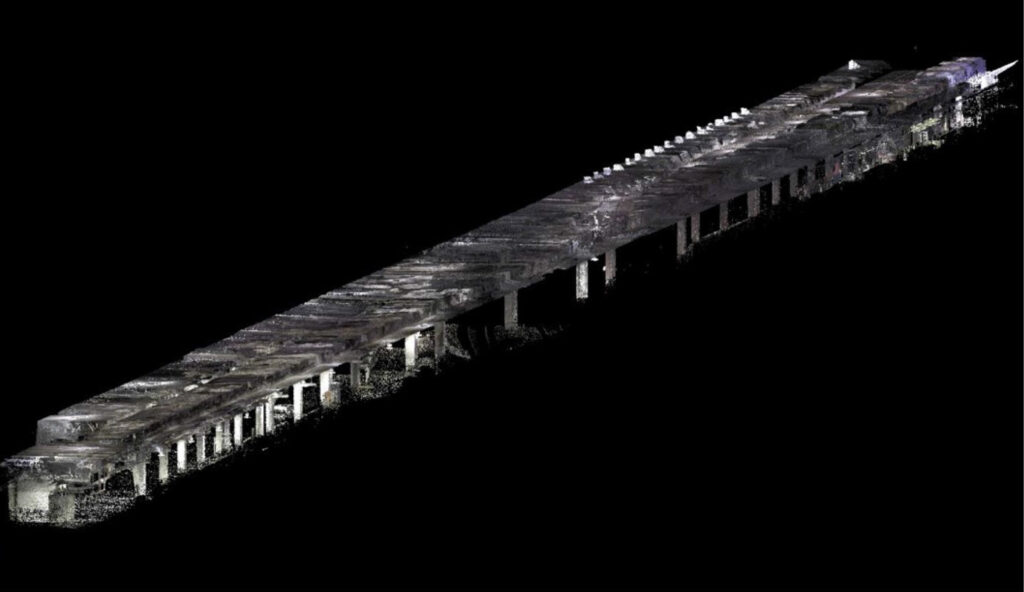
The standard delivery method of design/bid/build was used for the Canal Street Plaza Reconstruction. However, since the structure was more than 100 years old, only so much information could be obtained during the design process from the limited as-built documents that exist. As demolition progressed, varying connection types, deterioration, and unknown conditions were discovered, requiring unique redesigns.
Each time a condition was uncovered, the F.H. Paschen team surveyed and presented the information to the Benesch team. Benesch engineers would evaluate the impact of the new conditions and provide an alternate design, a significant departure in approach to similar design work. Such a process would not have been possible without adaptability by both the construction and design teams.
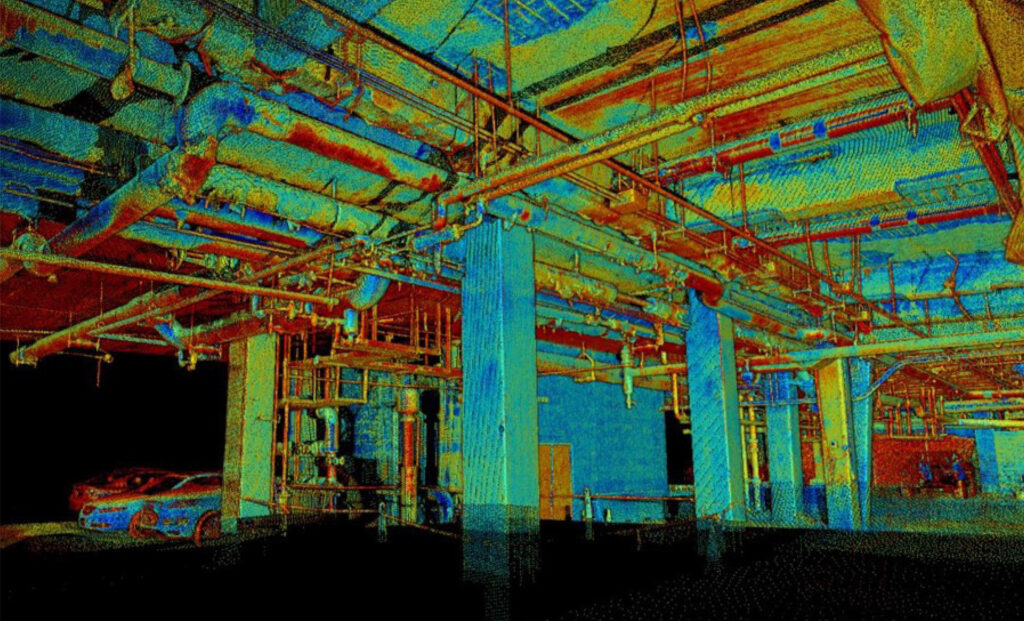
In addition to the challenges encountered with the aging structure, all work had to be completed within a very dynamic work area. At track level there were Amtrak commuter lines servicing Union Station, above was a Chicago Department of Transportation owned and maintained viaduct structure, attached to the viaduct structure was a privately owned 100+-year-old commercially used building, and cutting through this building and bearing on the viaduct structure was an Illinois Department of Transportation expressway. All stakeholders had to coordinate very closely to execute a project of this magnitude in such a congested and vital area of the City.
With active rail lines feeding Chicago’s busy Union Station right below and the Eisenhower Expressway running through the jobsite, the project required careful and complex safety protocol. To protect the train tracks and the heavy commuter traffic below the jobsite, we installed a pedestrian protection system that included scaffolding with a rubber membrane roof to catch potential falling debris, plywood sides, and temporary lights.
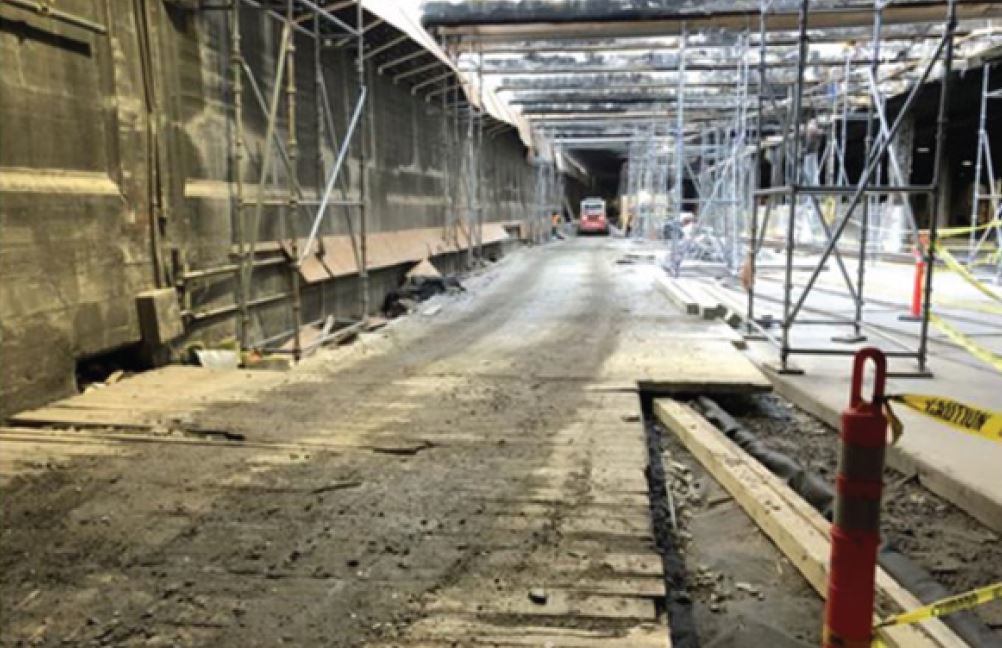
This system also provided commuters protection from the elements as they waited for their trains. F.H. Paschen safety protocols allowed continued accessibility to the businesses within the Old Post Office throughout construction.
Moreover, by working closely with Amtrak as well as Old Post Office/Jones Lang LaSalle officials, F.H. Paschen safety plan allowed them to complete 36,124 man hours in a highly dynamic, complex environment without a single OSHA recordable incident.
Marrying modern design practices to a 100+-year-old urban infrastructure was no small task as there were numerous inaccuracies or unknowns in the historic building drawings and plans. Addressing these unknowns required a flexible and innovative “design-on-the-fly” approach to achieve the most workable and effective design.
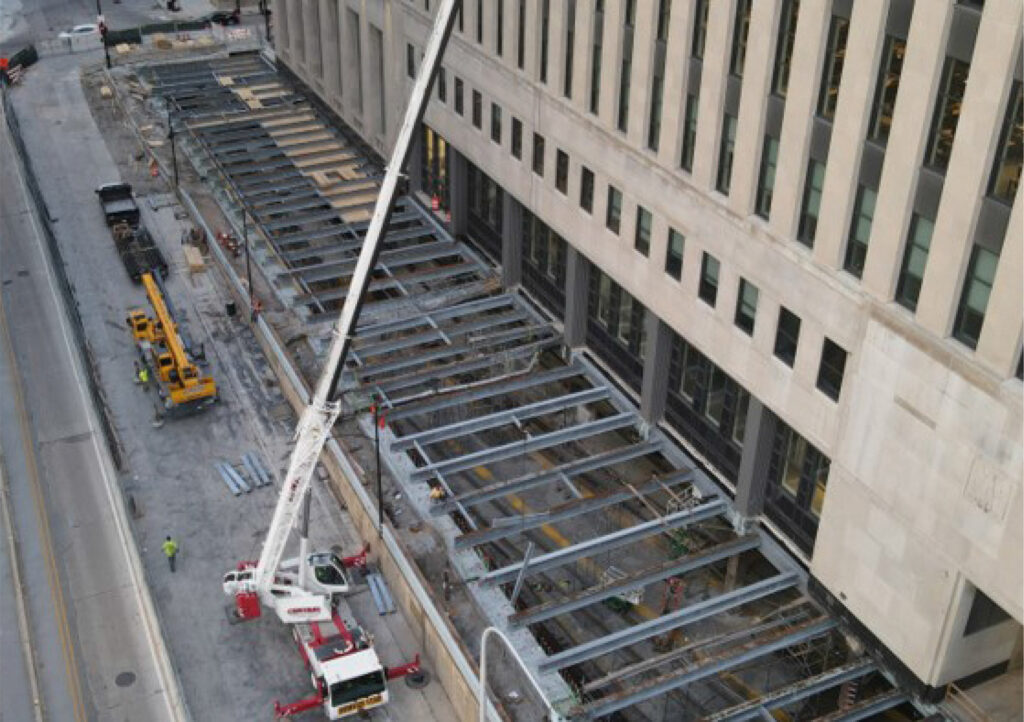
At the start of the project, the design engineer, Alfred Benesh & Co., developed several options for how the new superstructure would connect to the existing structure. As work began and existing conditions could be confirmed, F.H. Paschen provided Benesh with new data that would often require significant redesign as the initial plans would not work with the actual site conditions. Items that often required modifications included beam spacings, connection details, limits of removal, limits of proposed slab, slab elevations, and existing structure retrofits.
Close coordination between F.H. Paschen, Benesh, and the Owner meant F.H. Paschen was able to address all of the unknown conditions through quick and effective design modifications, sometimes in the middle of construction.
F.H. Paschen’s three-phase quality approach, which is based on the U.S. Army Corps of Engineer’s quality process, involves carefully planning, communicating, and documenting of all work. We used this approach successfully for the Canal Street revitalization project, which presented unique quality challenges due to the historical nature of the Old Post Office building and its additions over the last 100 years.
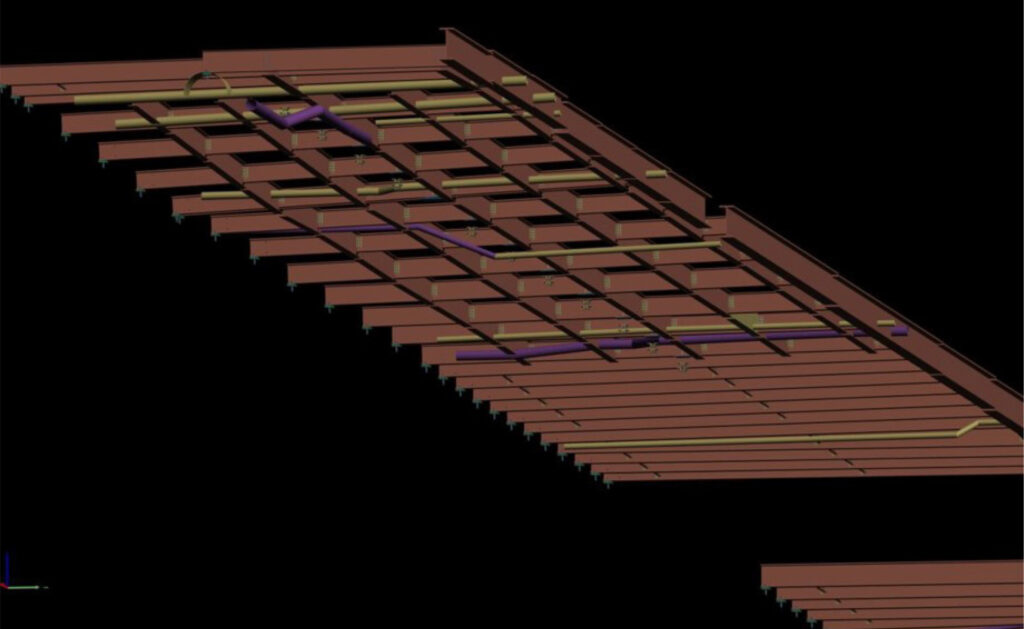
F.H. Paschen had to take extra care to maintain and protect the existing building features as they tied the new superstructure in with the old.
During the planning phase, F.H. Paschen ensured precise steel fabrication via numerous surveys to determine column line locations and bearing elevations of existing structures so that they were accurately depicted on fabrication drawings. Field measurement verifications allowed us to confirm/adjust the steel sizing prior to its delivery onsite.
3D scanning helped locate utilities so that F.H. Paschen could translate and scale them into a CAD model, which was then merged with the proposed structure’s 3D model. The composite 3D model allowed us to visualize the new structure vis a vis the existing structure to ensure all utilities were properly integrated.
Throughout the construction process, careful communication between our work crews and Amtrak/Old Post Office/JLL officials ensured the continuity of utility services as they were integrated into the new structure. Further, as work progressed, F.H. Paschen also had to be cognizant of the impact the construction would have on the train traffic below since the work would often impact the rail lines and commuters.
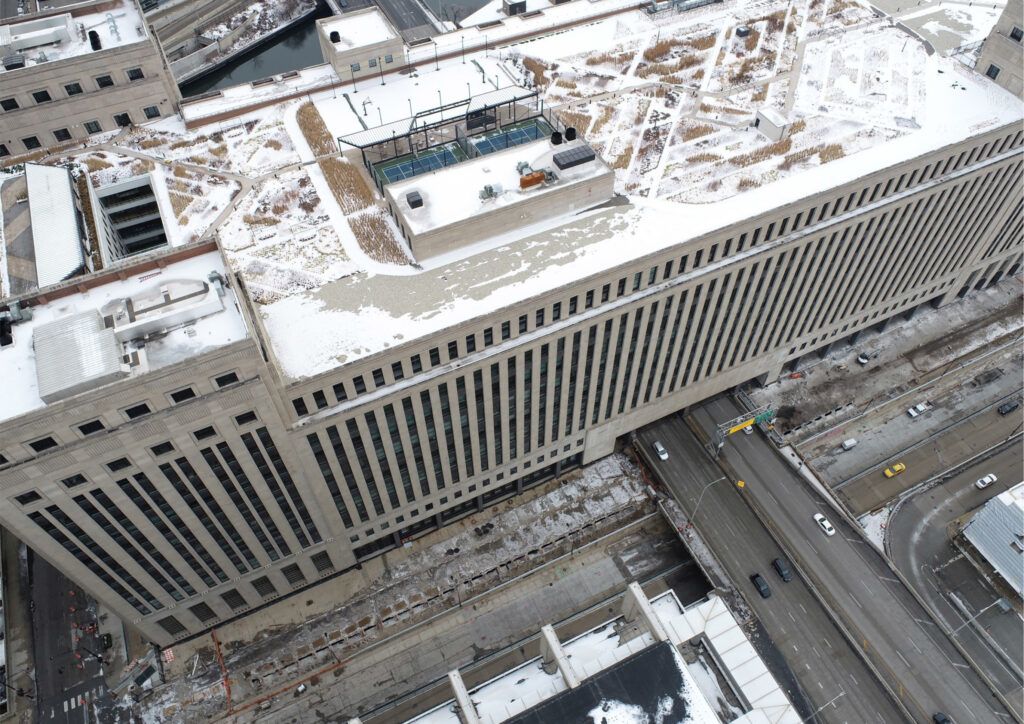
To minimize disruption while maintaining quality standards, we completed most work during nightly track shutdowns and weekend outages, with multiple tracks (five tracks and two platforms) closed during off hours so that construction could progress on schedule.
Work was consistently documented at all stages, from the initial surveys and 3D scans to drone footage of the jobsite at various points during demolition and construction. By the end of the project, we placed 170 CY of latex-modified concrete, 1,771 CY of concrete between the structures and the bridge deck, 450,000 pounds of reinforcing steel, and 800,000 pounds of structural steel.
The end result of our quality approach? A successfully revitalized, safe superstructure with no quality issues.
With the area around the Old Post Office becoming a focus for community and economic revitalization, the Canal Street Plaza Reconstruction was among the first steps to improving the surrounding area. The goal of this project was to create a safer, more attractive area while improving access to the plaza for all users. F.H. Paschen’s work has ensured those commuting in the area are safe and can easily access the businesses occupying the Old Post Office building.
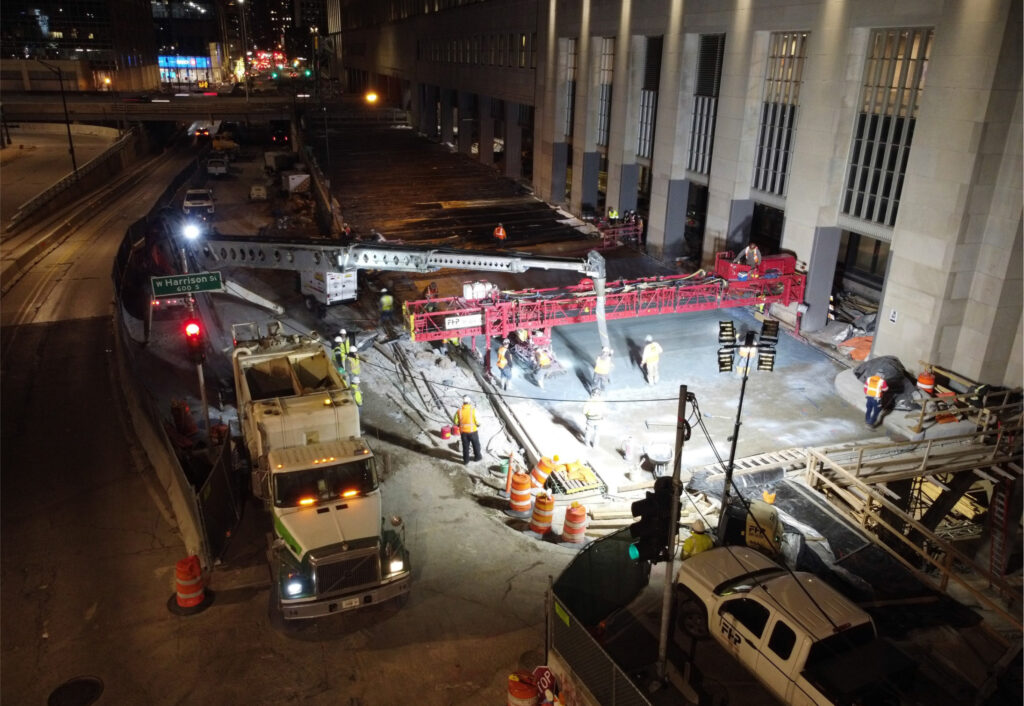
We also ensured active community participation through our subcontractors and workforce, which comprised 42 percent City of Chicago residents. We met all the owner’s
M/WBE diversity goals with 12 percent of the contract cost going to women-owned businesses and 26 percent going to minority-owned businesses.
“JLL saw the Canal Street Plaza reconstruction — the last of our building renovations — as the capstone to not only the Old Post Office renovations but the larger community revitalization as well. F.H. Paschen’s ability to work with a range of stakeholders in a complex environment was key to the project’s success. Their work has made the plaza safer and more attractive for the tenants, commuters, and residents in the surrounding community, turning our vision for this project into a reality,” said Kyle DeLuna Vice President, Product & Development Services Jones Lang LaSalle.
